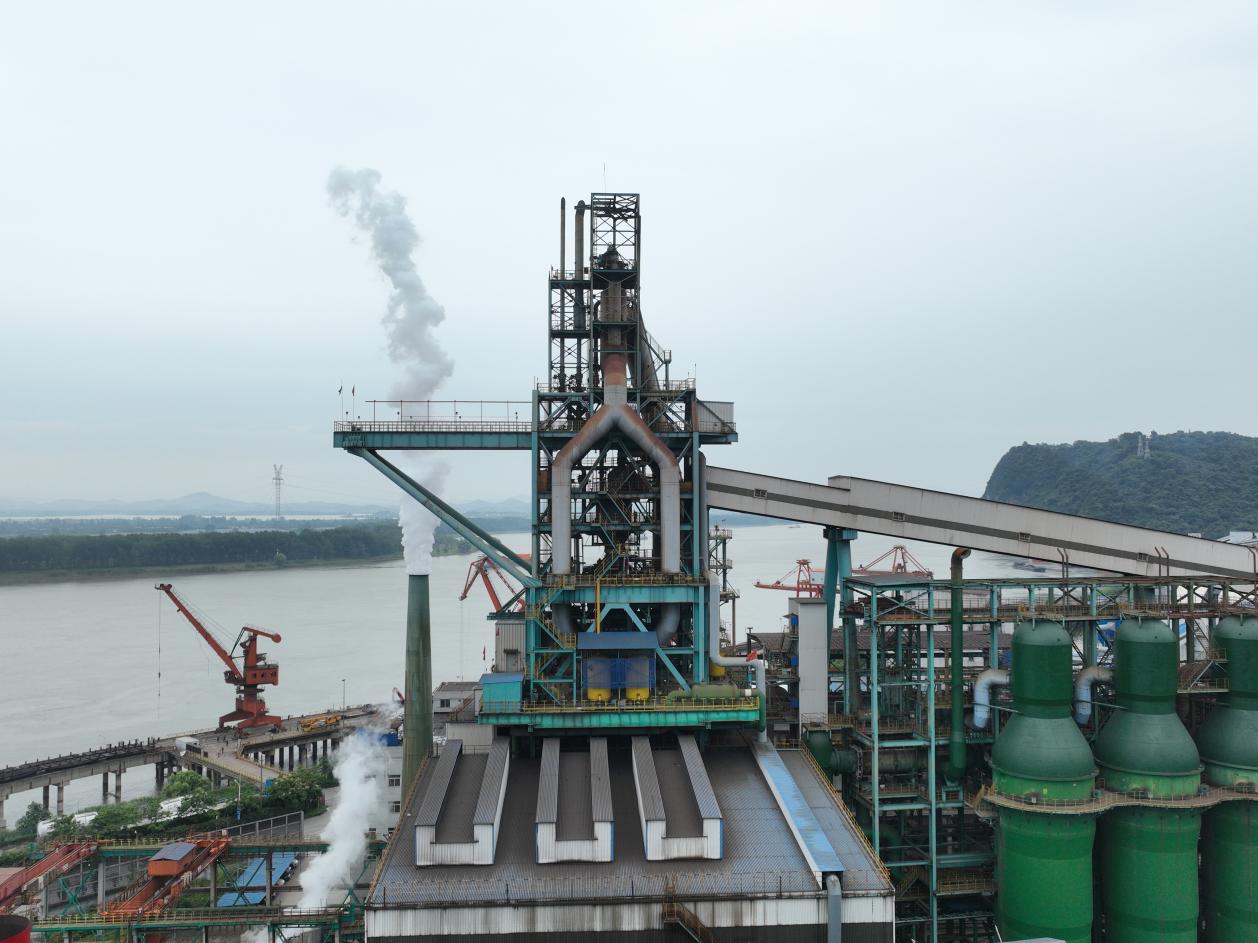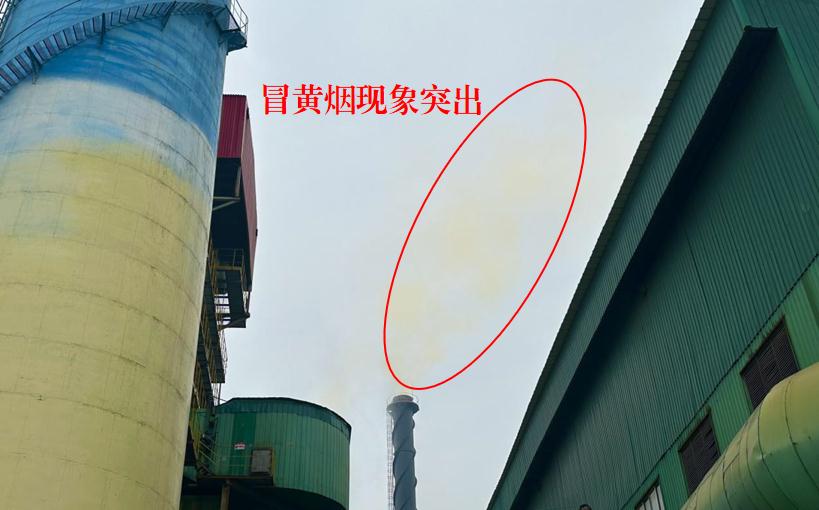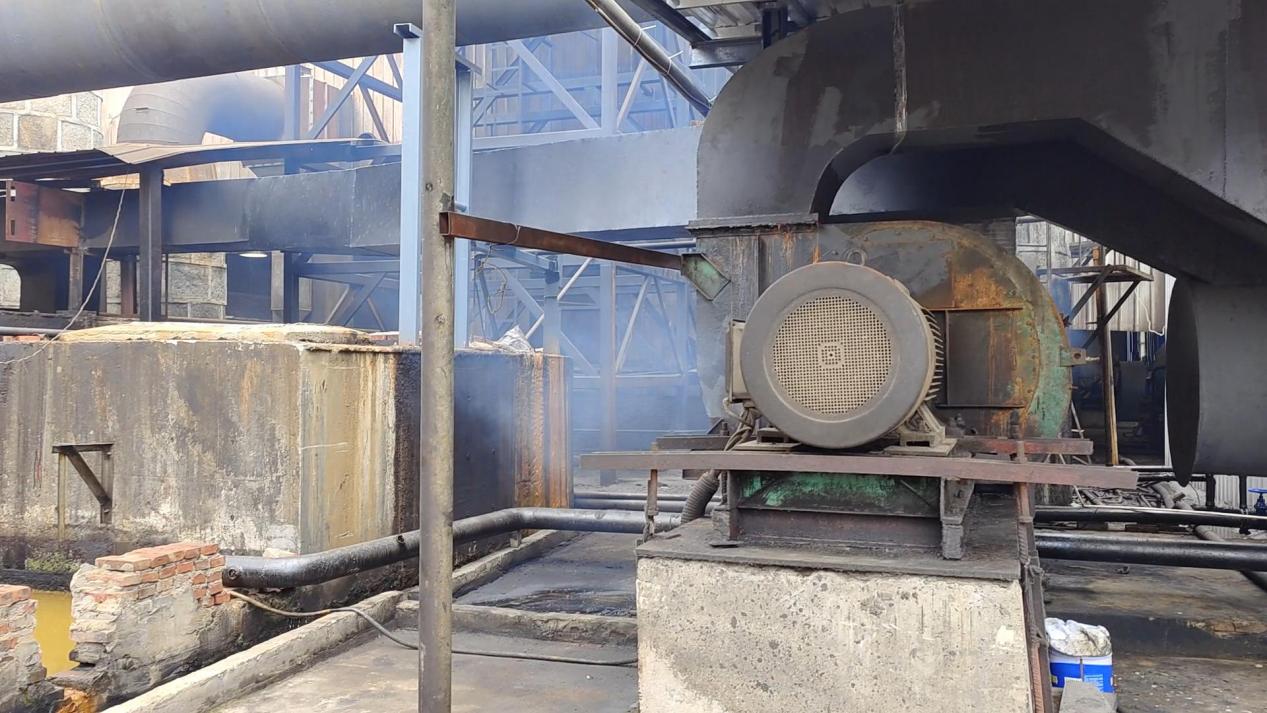Air pollution in many cities in Hubei has rebounded seriously. What is the problem?丨 Central inspector case tracking
During the "14th Five-Year Plan" period, the concentration of major pollutants in the ambient air of many cities in Hubei Province increased instead of decreasing. PM in Jingzhou City, Huanggang City, and Xiaogan2.5The concentration is increasing year by year, and will increase by 34.3%, 29%, and 27.3% respectively in 2023 compared with 2021.
On June 13, a typical case reported by the Central Ecological and Environmental Protection Inspectorate pointed out that the blind launch of the "two high" projects in some places in Hubei was ineffective, pollution control in some industries was not in place, some enterprises had prominent violations of laws and regulations, and environmental air quality rebounded seriously.
Blind launch of "two high" projects and poor control
In recent years, the "two high" projects have attracted much attention. The "two high" projects usually belong to the six major industries of coal and electricity, petrochemicals, chemicals, steel, non-ferrous metal smelting, and building materials, and these industries are key industries for pollutant and carbon dioxide emissions.
Allowing the "two high" projects to develop blindly will not only affect the improvement of regional environmental quality, but also affect the optimization and upgrading of industrial structure and energy structure adjustment, and will also affect the timely realization of carbon peak and carbon neutrality goals. In recent years, the central government has repeatedly emphasized that it must resolutely curb the blind development of "two high" projects. The central ecological and environmental protection inspector also made the blind launch of the "two high" projects a key content of the inspector.
In May 2024, when the Fourth Central Ecological and Environmental Protection Inspection Team inspected Hubei Province, it was found that in some places, the approval and construction of the "two high" projects was inconsistent, and the problem of construction before approval was prominent. The blind launch of the "two high" projects was ineffective.
The inspector found that the synthetic ammonia relocation and technical transformation project of Yunhua 'an Chemical Co., Ltd. in Huanggang City was approved for small scale and large scale, and 100,000 tons of synthetic ammonia production capacity was illegally added; the upgrading and transformation project of Hubei Xiongtao Ceramics Co., Ltd. increased the coal consumption by about 100,000 tons per year, and the energy conservation review procedures were not submitted for approval. Huangshi City Daye Special Steel Co., Ltd. was approved to build a 1280-cubic meter ironmaking blast furnace. In August 2020, 1840 cubic meters were actually built and put into use, with an additional ironmaking capacity of approximately 390,000 tons; Hubei Tianyuan Mold Materials Co., Ltd. illegally built a 15-ton intermediate frequency furnace in February 2024.

On June 4, the on-site inspection of the inspection team found that Huangshi City Daye Special Steel Co., Ltd. was approved to build a 1280 cubic meters iron-making blast furnace, and 1840 cubic meters were actually built. Map provided by the inspection team
In addition, in accordance with the requirements of the "Notice on Strengthening the Supervision and Management of Regional Reduction Measures for Key Industry Construction Projects" issued by the Ministry of Ecology and Environment in December 2020, if the environmental quality of the area or river basin control unit does not meet the national or local environmental quality standards, the construction project should Propose an effective regional pollutant reduction plan.
However, the inspector found that the PM2.5 concentration in Jingzhou City in 2020 did not meet the second-class environmental air quality standard. In 2021, the park gas power platform project and synthesis gas comprehensive utilization project of Hualu Hengsheng (Jingzhou) Co., Ltd. located in this area did not prepare effective reduction plans as required. Instead, the pollutant emissions from the 16 brick and tile factories closed in 2016 were used as the main source of reduction, but there was no reduction in actual terms. These two projects will be completed and put into operation in October 2023, and will add about 500 tons and 700 tons of sulfur dioxide and nitrogen oxides every year, accounting for about 8% and 4% of Jingzhou City's total emissions.
Pollution control in the flat glass industry is not in place
Data shows that the output of flat glass in Hubei Province in 2023 will be 106.6887 million weight boxes, ranking second in the country.
However, production has increased, but pollution control has not kept up. Inspectors found that five of the eight flat glass production companies in Hubei Province illegally used high-sulfur petroleum coke. Three companies, including Wuhan Changli New Materials Technology Co., Ltd., Hubei Hanyu Building Materials Technology Co., Ltd., and Hubei Yijun Yaoneng New Materials Co., Ltd., are located in the high-polluting fuel no-burning zones of Wuhan City and Jingzhou City respectively. They should not use petroleum coke, but use high-sulfur petroleum coke for a long time.
Inspectors told reporters that the Air Pollution Prevention and Control Law stipulates that the sale and use of highly polluting fuels are prohibited in the no-burn zone. In July 2019, the "Comprehensive Control Plan for Air Pollution in Industrial Kilns" jointly issued by the Ministry of Ecology and Environment, the National Development and Reform Commission, the Ministry of Industry and Information Technology, and the Ministry of Finance clearly required that the glass industry completely prohibit the blending of high-sulfur petroleum coke.

On March 4, the inspection team secretly found that Hubei Yijun Yaoneng New Materials Co., Ltd. was emitting yellow smoke. Map provided by the inspection team
"Enterprises illegally use high-sulfur petroleum coke in high-polluting fuel no-burn zones. On the one hand, they expose the poor supervision of relevant local departments, and on the other hand, they also reflect that enterprises are not fulfilling their main responsibilities for ecological and environmental protection." said the inspector.
In addition, the inspector also found that the "Guidance Catalogue for Industrial Structure Adjustment (2011 Edition)" clearly pointed out that the clay crucible glass fiber wire drawing production process and equipment are backward production process equipment and should be eliminated immediately. However, 6 companies in Huanggang, Jingmen and Tianmen cities have built 8 clay crucible glass fiber wire drawing production lines, 3 of which were newly built this year.
Fraud problems in monitoring and testing are common
Motor vehicle nitrogen oxide emissions in Hubei Province account for about 40% of the province's total emissions. In the prevention and control of motor vehicle pollution, environmental testing of exhaust gas is an important part. However, the inspector found that some vehicles that originally failed to meet the environmental protection test of exhaust gas successfully passed the test.
Inspectors told reporters that 7 of the 8 motor vehicle exhaust gas testing agencies randomly inspected during the inspection period resorted to fraud, and the forms of fraud were "diverse." Some use the fan speed of other equipment to forge the actual detected vehicle speed and issue false test reports; some reduce the vehicle speed by loosening the throttle, shifting gears, etc., thereby reducing the detected concentration of pollutants emitted by diesel vehicles; some artificially install valves on the intake pipes of testing equipment to reduce the intake flow and reduce the concentration of exhaust pollutants; some change the testing method without justifiable reasons and reduce the inspection standard, making the vehicle change from unqualified to qualified.
Typical cases disclose the list of these seven fraudulent motor vehicle exhaust testing agencies, namely Jingmen City Wanchang Automobile Service Co., Ltd., Xianning City Tongcheng Dongsheng Motor Vehicle Testing Co., Ltd., Yichang Dangyang City Yongsheng Motor Vehicle Comprehensive Performance Testing Co., Ltd., Wuhan City Haojiangnantian Motor Vehicle Testing Technology Co., Ltd., Wuhan City Chenggong Motor Vehicle Safety Technology Testing Co., Ltd., Jingmen City Yaodong Automobile Service Co., Ltd., Yichang City Dangyang Antong Motor Vehicle Testing Co., Ltd.
Inspectors told reporters that during on-site inspections, they also found that the authorized signatories of some motor vehicle exhaust testing agencies did not strictly perform their duties. When the authorized signer himself was not at the scene, a seal was used instead of the authorized signer's personal signature and issuance.
In addition to notifying motor vehicle exhaust testing agencies to issue false reports, this typical case also pointed out that some enterprises 'automatic monitoring data were distorted and inaccurate.
The inspector found that during the normal production period from February 2 to May 20, the nitrogen oxides and particulate matter in boiler flue gas exceeded the standard for 40 days and 31 days respectively, but the company falsely marked the production status as "shutdown". Report to the regulatory platform to avoid punishment. The on-site measured sulfur dioxide concentration in the flue gas of coal-fired boilers of Xiaogan Changzhou Salt Chemical Co., Ltd. is four times that of the automatic monitoring data, and some of the flue gas without desulfurization treatment is discharged directly.

On May 20, the on-site inspection of the inspection team found that there was serious pollution during the production of Jingzhou City Yusha Group Co., Ltd. Map provided by the inspection team
"Air pollution rebounded seriously in some places in Hubei Province. The reasons are that insufficient attention has been paid to improving the quality of the atmospheric environment, insufficient efforts to prevent and control pollution, ineffective promotion of pollution control measures, insufficient supervision by relevant departments, and failure to implement the main responsibilities of some enterprises." The inspector analyzed.







